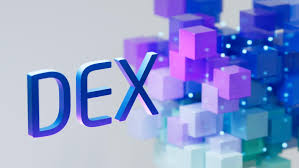Analysis: Why can Bitcoin submit a listing application secretly?
Source: Deep Chain Finance
According to Tencent News "Plough", a week before Wu Jihan launched the "coup" raid, Bitian China has secretly submitted a listing application to the SEC. The sponsor is Deutsche Bank. Why can it be submitted in secret? What is the difference between a public offer and a prospectus?
The secret submission came after Obama signed the JumpstartOur Business Startups Act in April 2012, referred to as the JOBS Act, which is applied to Emerging Growth Companies with a recent fiscal year operating income of less than $1 billion.
This means that such companies only need to submit a draft prospectus to the US Securities and Exchange Commission, and there is no need to issue a formal prospectus 15 days before the roadshow. The beginning of the road show means that companies preparing to go public need to introduce companies to potential investors throughout the United States and around the world, inviting them to participate in the company's initial public offering.
- Tiandao has a good reincarnation, who the SEC has spared: What impact does the SEC’s regulatory punches have on the encryption market?
- BCH's "time bomb"? The commentary believes that "halving BCH" is a disaster for them.
- What is the difference between the central bank digital currency DCEP and Alipay, WeChat and Bitcoin?
In June 2017, in order to activate the US IPO market, under the leadership of Jay Clayton, the chairman of the Securities and Exchange Commission appointed by the current President Trump, the policy of secretly filing an initial public offering document was relaxed. To all companies that are ready to go public. This also means that all companies preparing to go public in the US can choose to submit an initial public offering application file.
For the proposed company, the benefits of the bill are:
1. Simply submit the audited financial statements for the last two years instead of three years.
2. The maximum number of shareholders before listing has been relaxed from 500 to 2,000, and the number of “unqualified” investors has been relaxed to 500, making it difficult to change the stock before the listing, and relaxing the requirements for individual investors.
3. After the s-1 form is submitted, the information will only be disclosed to the US Securities Regulatory Commission and specific investors. The public will not be seen until three weeks before the road show. This will protect the business information of the listed company. The proposed company can not make the public Under the premise of understanding your financial situation, you should make an inquiry to the major investors and decide whether to go public after testing the water.
4. Exempt from SOX 404b, it is not necessary to establish internal control according to SOX before listing, and establish internal control after listing.
The most unfavorable place for the listed company: a large number of investors can see the financial information of the listed company three weeks before the road show, and there is no time to do enough background investigation, and may be cautious about the offer of the listed company.
We will continue to update Blocking; if you have any questions or suggestions, please contact us!
Was this article helpful?
93 out of 132 found this helpful
Related articles
- BCG Boston Consulting Analysis Report: Financial + Blockchain, Going Out喧嚣
- Bitcoin has secretly submitted a listing application to the US SEC. The sponsor is Deutsche Bank.
- Babbitt Column | The Essence of Blockchain: The Essence of Computation and Consensus
- Jia Nan’s four wars IPO, but the time left for it’s transformation is running out.
- Why is the hash public key not resistant to quantum computing threats?
- Inside the ICBC internal digital wallet: China leads the currency trend for 3000 years
- Jianan Zhizhi prospectus full interpretation: 99% of revenue comes from mining machines and related sales, future growth bets on AI chips






